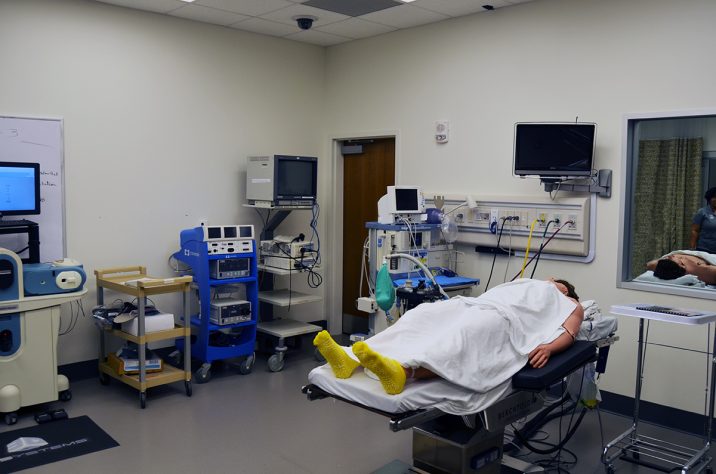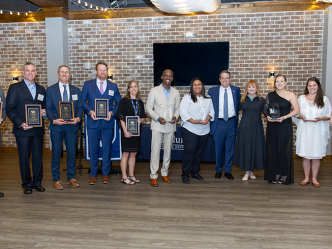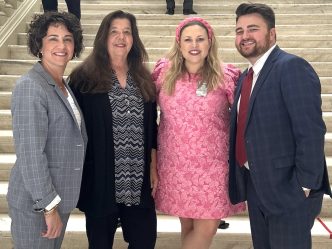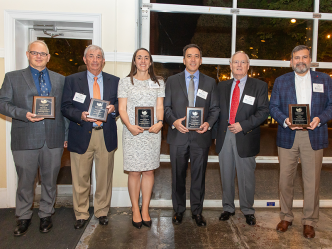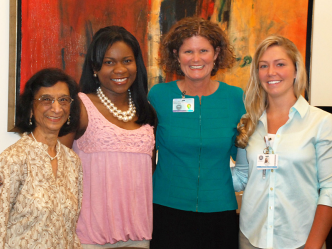A patient has stopped breathing. A nurse, anesthesiologist, and surgeon have just seconds to determine what happened. If they make the wrong decision, the patient dies. Amazingly, the team will get a second chance to save this life, because the patient in the bed today is a mannequin, specially designed for clinical training. If the team fails, they can work together in the state-of-the-art Department of Emergency Medicine until they get it right. After all, future patients will depend on it.
If it could happen in real life, it can be simulated in training, according to Dr. Matthew Tews, the medical director of the 40,000-square-foot hands-on Interdisciplinary Simulation Center in the J. Harold Harrison, M.D. Education Commons at Augusta University.
“There are a lot of irregularities we can program into these mannequins,” said Tews. “These students can practice different types of patient care cases, work on procedural skills or engage in specialty work activities.”
The center opened in 2014. It includes 10 simulation rooms, 30 clinical skill exam rooms, skill labs, debriefing rooms and a 150-seat classroom to discuss the results of a training exercise.
When the exercise is over, the real learning begins, scholars say.
“The simulation experience itself is exciting and challenging, but not sufficient,” said Dr. Zach Kelehear, vice president of Instruction and Innovation at Augusta University. “Much of the learning occurs after the experience, in the conference rooms just around the corner from the mannequin, in our debriefing rooms.”
It’s in these reflective moments, according to Kelehear, when gifted teachers in medicine, nursing and allied health make meaning out of experiences. Through action and contemplation, significant learning emerges.
While the center lives on the third floor of the Education Commons – home of the Medical College of Georgia – Tews and his team collaborate with The Dental College of Georgia, the College of Nursing and the College of Allied Health Sciences to create learning scenarios. The center is open to all professors at Augusta University looking to take students out of the classroom and put them in a simulated learning environment.
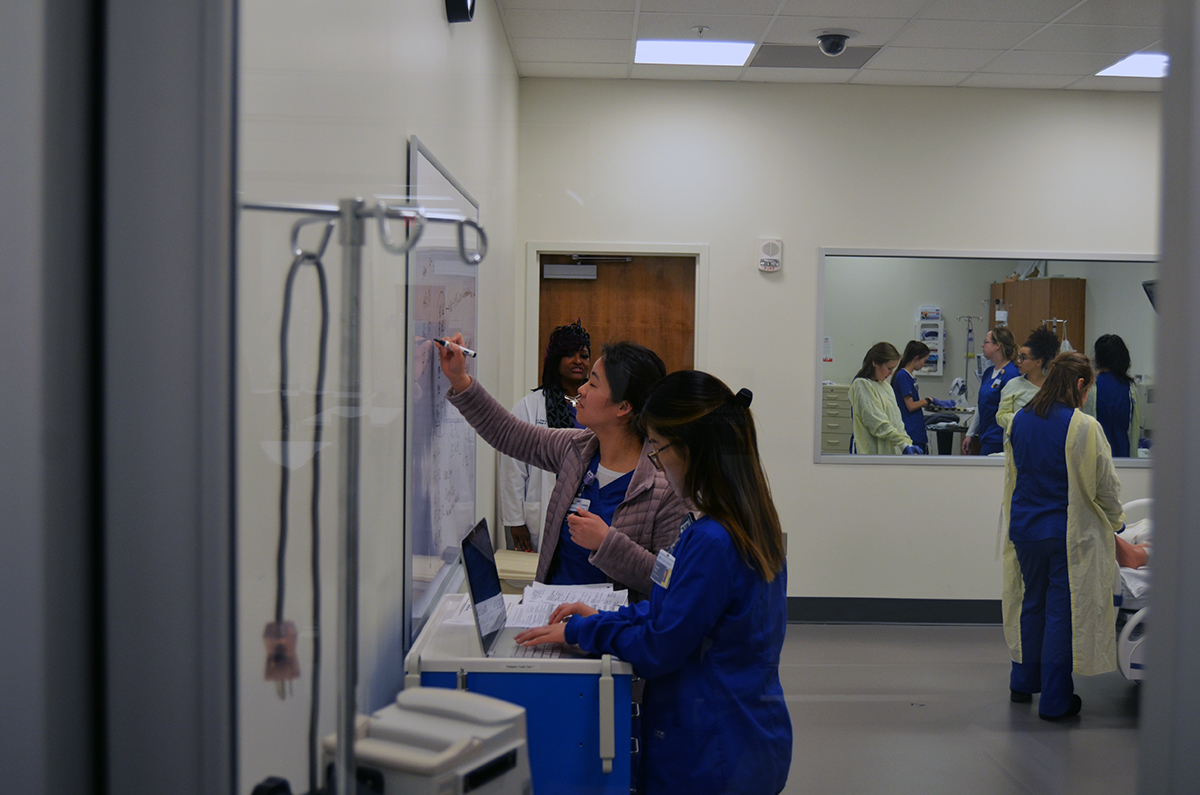
In a recent scenario, a group of Emergency Medicine residents was faced with a pregnant woman in distress and an emergency C-section. The simulated patient had no pulse and stopped breathing.
“In the scenario, they were forced to deliver the baby,” Tews said. “They had a set time to complete the scenario successfully.”
The baby was a tiny mannequin in a bag filled with water to simulate the womb. In addition, there was an artificial placenta in a bucket. However, all the patient monitoring equipment and surgical instruments were authentic.
“We would talk about the right time to perform the C-section and the best way to do the procedure in an emergency situation,” Tews said. “Now that they’ve gone through the exercise mentally and physically, they are better prepared if they face this situation in their real-world career.”
Because the simulation center is interdisciplinary, it promotes inter-professional interactions, which is a key benefit since various disciplines must work together in the field.
“As with all learning environments across Augusta University, at the Simulation Center, we are looking at the learning outcomes, curricula, simulations, augmented reality and virtual reality,” Kelehear said. “My job in part is to build a team that can design innovative ways to deliver educational content.”
It may take up to two months to turn a concept into a scenario, said Tews. It begins with his team discussing with the doctor, professor or expert what they want to accomplish through the experience.
“We want the learner to walk away with a piece of knowledge, a new skill or a new ability to communicate and interact with other professionals,” Tews said. “We try to test the scenario to check through the various pieces including making sure the mannequin programming works correctly or the human actors know their dialogue and actions. It takes a lot of communication.”
Currently, undergraduate students and graduate-level learners at Augusta University are the only ones using the center. However, both Tews and Kelehear shared a desire to grow the staff to serve other schools in the region, including Augusta Technical College, University of South Carolina Aiken, and Aiken Technical College.
“We also want to extend our reach into areas across Georgia where health care providers are rare, and trainer opportunities even more rare,” Kelehear said.
“I like to say the only limitation to what we can do in this simulation space is the limit of a teacher’s imagination and the creativity of our staff,” Tews said. “It’s a great opportunity to show them that if you can think it, there’s a good chance we can create it.”
 Augusta University
Augusta University
